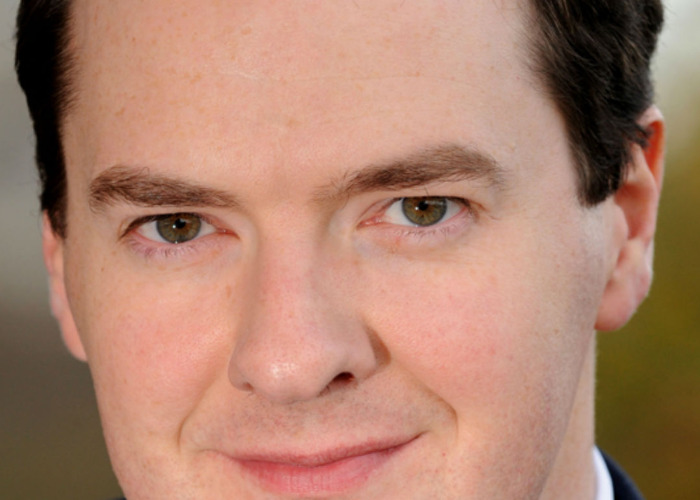Autumn Statement 2014: what it means for you

The Chancellor has delivered his final Autumn Statement before the General Election. Here's what he had to say and what it means for your money.
George Osborne has delivered his final Autumn Statement before next year’s General Election. Here’s what he had to say and what it means for your money.
Stamp Duty
The biggest news was the complete overhaul of Stamp Duty, which the Chancellor described as a “badly designed tax on aspiration”.
Gone is the so-called 'slab' system, where paying £250,000 would land you a £2,500 (3%) bill but £1 more would treble that tax bill as your home fell into the next Stamp Duty bracket.
Instead, tax will only apply on the part of the property price that falls within that band, as is the case with Income Tax.
Here’s how it will now work
|
Property value |
Tax rate charged on part of property price within each tax band |
|
£0-£125,000 |
0% |
|
£125,001-£250,000 |
2% |
|
£250,001-£925,000 |
5% |
|
£925,001-£1.5 million |
10% |
|
£1.5 million plus |
12% |
So, for example, if you buy a home for £200,000, you will only pay 2% on £75,000 of that purchase price, meaning a fall in your Stamp Duty bill from £2,000 under the old system to £1,500.
Here’s how the Stamp Duty bill will change for a range of property prices as a result of these changes.
|
Property value |
Old Stamp Duty bill |
New Stamp Duty bill |
|
£150,000 |
£1,500 |
£500 |
|
£275,000 |
£8,250 |
£3,750 |
|
£400,000 |
£12,000 |
£10,000 |
|
£650,000 |
£26,000 |
£22,500 |
|
£950,000 |
£38,000 |
£38,750 |
As you can see, it's only when the purchase price is higher than £937,500 that the Stamp Duty bill changes under the new system. These changes come into force from midnight tonight (Wednesday).
For those who have exchanged but not completed, buyers will be able to choose whether to pay Stamp Duty under the existing or new rules. The changes will also apply in Scotland ahead of its own Stamp Duty changes, which come into force on 31st March 2015.
Tax
For individuals, the main news is that the personal tax allowance – the amount you earn before you start paying Income Tax – is being increased to £10,600 from April. It was previously set to increase to £10,500.
What’s more, the threshold at which you start paying the higher rate of tax will also be increased to £42,385 from £42,285, though the Chancellor said he wants to raise it to £50,000 by the end of the decade. It's currently £41,865.
Fuel duty will be frozen, as expected.
Air passenger duty will also be scrapped for children under 12 from 1st May next year. And then from 1st March 2016 it will be scrapped altogether for children under 16.
The scrapping of pension death taxes, which have already been announced, were also confirmed. For more on these changes read Tories to slash pensions ‘death tax’.
There will be a new limit on how much banks can offset their profits with historical losses, which the Chancellor argues will raise an extra £4 billion.
And multi-nationals will have to pay 25% tax on profits that they move out of the UK, which should raise another £1 billion over the next five years.
Savings
The Chancellor was keen to emphasise that he wanted to improve fairness for savers.
The main announcement here was removing the tax paid on ISA balances when the saver dies and passes those savings onto their loved ones. You’ll now be able to pass that money on free without the taxman taking a chunk.
The amount you can save in an ISA will increase from £15,000 to £15,240 from next year. The annual allowance for Junior ISAs and Child Trust Funds will increase to £4.080.
The Chancellor also said that the Government wanted to “encourage peer-to-peer lending”, though there was no further detail in the speech itself.
However, the document from the Treasury reveals that this means removing regulatory barriers which currently “stands in the way of institutional lending” through peer-to-peer platforms.
There's also a new tax relief to allow individual lenders to offset any losses from loans which go bad against other peer-to-peer income. You’ll be able to claim relief on any losses through your self-assessment tax return from April 2015.
Finally, there will be a consultation on the introduction of a withholding regime for Income Tax to apply on peer-to-peer sites from 2017, meaning you wouldn’t need to file for self-assessment if you want to use a peer-to-peer site.
Education
New £10,000 loans will be available for postgraduate students undertaking a masters degree.
Pensioner Bonds
It had been expected that George Osborne would confirm exactly what interest rates Pensioner Bonds will pay. However, this has now been put back until Monday (8th December).
More on household money:
What we spent our money on last year
Why you must make a financial plan
Comments
Be the first to comment
Do you want to comment on this article? You need to be signed in for this feature